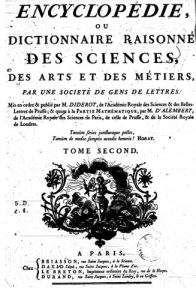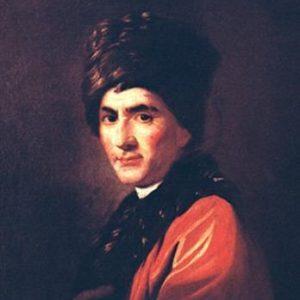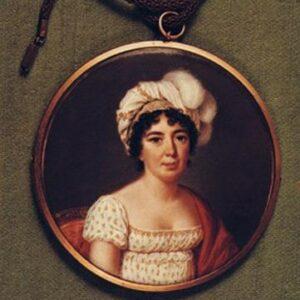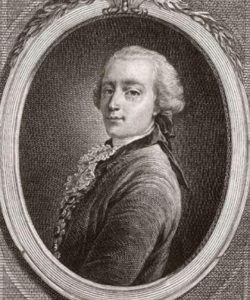This young protestant traveled all over Europe while completing his studies
Louis de Jaucourt was born on 27th September 1704 in Paris. He came from a family of the nobility who lived in the regions of Champagne and Burgundy. They had joined the Reform Movement as early as the mid sixteenth century but had been forced to abjure their faith at the time of the revocation of the Edict of Nantes. However, they managed to secretly worship at the reformed services held in the Scandinavian embassies of Paris. Indeed, after the Edict of Tolerance (1787), one of their descendants, François Jaucourt, played an important role in French Protestantism.
In 1720, Louis began to study reformed theology in Geneva ; this was followed by mathematics and physics in Cambridge. His tour of Europe was then finally completed by a doctorate of medicine in Leyden. He could speak five modern languages (his mother tongue, French, German, English, Italian and Spanish) as well as Greek and Latin. He had a thorough knowledge of the classics as well as contemporary literature, not to mention history, politics, philosophy, theology, physics, mathematics, chemistry, botany, the Humanities, and the fine arts. In 1738, he returned to France to lead a scholarly life for the rest of his days.
A scholar of the Enlightenment
In 1728, Jaucourt started to write and edit articles in several scholarly and scientific journals. He also wrote a Life of Leibniz : the first version of this book appeared in 1734, with furtherenriched editions coming out in 1747 and 1760. As a result of this work, he was elected to the Berlin Academy in 1764.
Soon after 1728, Jaucourt started to write a universal medical dictionary in Latin (Lexicon medicum universale), which eventually ran to six large volumes. He had to send it to a publisher in Amsterdam because of the censorship in France but, sadly, the manuscript was lost in a shipwreck off the coast of Holland. As the author had not made a copy of it, many years of hard work thus disappeared for ever.
In September 1751, Denis Diderot (1713-1784), asked Jaucourt to contribute articles to the Encyclopédie ou Dictionnaire raisonné des sciences, des arts et des métiers. The first volume of this work had just been published. Jaucourt began writing for the second volume which was published in January 1752 and was one of its most prolific authors. Other contributors were Condillac, Holbach, Helvétius, Buffon, Turgot, Quesnay, Rousseau and Voltaire.
De Jaucourt was "a slave to the Encyclopédie"
The Encyclopédie contained 17 volumes of text (1751-1766), 11 volumes of illustrated engravings (1762-1772), a 5 volume supplement and 2 volumes of analytical tables (1780). There was gathered together in this work a vast sum of knowledge which enabled much progress to be made at a later date in scientific and technical realms. There were 146 contributors. As for the Chevalier de Jaucourt himself, he wrote about 17000 articles out of a total of 68000. Diderot referred to him affectionately as a slave to the Encyclopédie.
Among the Chevalier de Jaucourt’s best articles, those on the following subjects are well-known : Conscience, Democracy, national Equality, Slavery, France, Government, War, the Inquisition, natural Freedom, civil Freedom, political Freedom, fundamental Law, religious Melancholy, Paris, the Fatherland, the People, the Press, the Republic, Superstition and the Slave Trade, but in addition to these, he also wrote numerous articles on physics, chemistry, botany and pathology. From his writing, we can catch a glimpse of a man who was astute, independent and tolerant in his thinking with a deep respect of religion.
The life of an Encyclopedist
De Jaucourt spent the last twenty years of his life working relentlessly for the Encyclopédie – sometimes he would compile and dictate up to four articles a day, with the support of many secretaries and copy writers. Indeed, without him, the Encyclopédie would probably never have been finished. As well as this work, he also wrote a biography of the famous Dutch doctor Boerhaave, (Vie de Boerhaave) and, together with Diderot and D’Alembert, Syonymes français.
De Jaucourt was not a man of the world ; he left his possessions to the poor, to whom he had given free medical care in his lifetime. He paid those working for him on the Encyclopédie out of his own pocket – this led to him having to sell his own magnificent house in Compiègne to the bookseller Le Breton, one of the editors of the Encyclopédie. In exchange, he was allowed to live there without charge until the end of his life and it was here that he finally died on 3rd February 1779.






